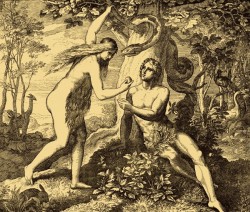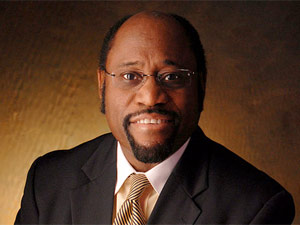We live in an age that has literally lost the sense of sin. This is due largely to the one-sidedness of the Enlightenment and the resultant loss of the value of man. Archbishop Fulton J. Sheen writes: “Once one loses hold on the primary dogma that man has a moral end, and that his actions, thoughts, and words in this life are all registered in the Book of Life, and therefore will one day determine his eternal destiny, sin becomes meaningless.”

God, the first cause, is the Creator of all. By the fact of creation we are subject to Him as we can be to no other earthly power. He is our last end. His moral law is written in the conscience of every man. Like a thoughtful parent He showers us with gifts and gives us actual graces to use them to do good works that increase our spiritual life. Hence, it is in the love of Him and in the worship of Him, that we find our perfection and happiness.
Sin, is a wilful transgression by thought, word, deed or omission, of the law of God. It is an act – rooted in the heart – of disobedience, ingratitude, unfaithfulness and injustice. It is the most odious and criminal thing in existence. Depending on its gravity sin can be either mortal or venial.
Mortal sin is an act of turning away from God, our last end, willingly attaching ourselves in an inordinate manner to some inferior good. When we sin it is not so much the creature we are seeking as the pleasure we find therein. It is God alone, however, who can quench the soul’s thirst.
The Catholic Catechism (1857) states that three conditions are necessary for a sin to be mortal: its object must be grave matter (i.e. the 10 Commandments) and it must be committed with full knowledge and with deliberate consent. If full knowledge and complete consent are lacking the sin is venial. The Catechism (1859) also tell us that “Feigned ignorance and hardness of heart do not diminish, but rather increase the voluntary character of a sin.”
Mortal sins attack the vital principle of charity in us and deprive us of sanctifying grace which is the supernatural life of the soul uniting us to God. When we commit a mortal sin, previous merits are lost and new ones cannot be acquired. Little by little the moral strength of the soul is sapped, actual graces become rarer, discouragement and at times despair ensue. Without repentance and forgiveness one cannot, due to their own radical choice, enter heaven but is damned to hell for eternity. There, one experiences the well-deserved pain of loss. By the very constitution of his nature, by the cravings of his heart and mind, by the urges of his entire being, he is now uncontrollably driven toward God who loved him so as to die for him upon the Cross. Yet a ruthless force beyond his power, the force of sin, his own sin, hopelessly thrusts him back upon himself. Happiness and perfection are forever lost.
Added to the pain of loss is the pain of sense. The body, a partner in sin, will share the torment of the soul; the everlasting despair which will torture the reprobate soul, will produce in the body an unquenchable thirst that nothing can assuage. Besides, the damned will also be tortured by a real fire – not material – in keeping with his inordinate delight in creatures; “By what things a man sinneth, by the same also he is tormented” (Wisdom, 11: 17).
Satan and the rebel angels committed but a single unrepentant sin of interior pride. Though God loved them as adopted children and tempers the rigor of his justice with goodness, they were cast into Hell, there to remain separated from God for all eternity.
Our first parents Adam and Eve also committed a sin of disobedience and pride. As a punishment they were banished from Paradise and stripped, along with the life of grace, of all the free gifts God gave them leaving a dismal heritage of original sin upon us all. This gives some indication of the horror of sin – an evil which we can never sufficiently detest.
To save man and safeguard the rights of justice and mercy, God sent his only Son into the world to atone for and expiate sin in our stead. To see and learn what the evil of sin really looks like we need only to follow Jesus from the stable to the cross; through His hidden life of obscurity, of submission, of poverty, of toil; His apostolic life of fatigues and failures amidst ill-will and persecutions; His suffering life of unspeakable torture of body and mind from both his friends and enemies. Indeed “He was wounded for our iniquities: He was bruised for our sins” (Isaias 53:5).
Venial sins are commonly divided into faults of surprise and deliberate sins.
Faults of surprise, are committed through thoughtlessness or momentary weakness of will that leads to imprudence, rash judgements, words against charity, or lies meant to cover up faults. We can diminish the number of these through vigilance and by avoiding discouragement.
Deliberate venial sins are a greater hindrance to our spiritual progress and must be combated more vigorously. They are an offense against God that do not turn us from our end but nonetheless check our progress. They merit temporal punishment.
By refusing to obey God, even in a slight matter, we withhold from Him a measure of His glory and show our ingratitude and lack of generosity: “Thou shall love the Lord thy God with thy whole heart, and with thy whole soul, and with the whole mind”(Matt. 22: 37).
Frequent deliberate venial sins do not take away sanctifying grace but they deprive the soul of many new graces. Like mortal sin they cloud the conscience and corrupt concrete judgement. They gradually lessen our fervor for generosity predisposing the soul to hardness of heart and ultimately to mortal sin with final impenitence. When we give in to such sins – telling ourselves they are only venial – we begin to feel weariness and start to think that it is not necessary to aim at high ideals i.e. that we can attain heaven on more reasonable terms. It is then that we begin to justify our self-complacency, sensual gratifications, sentimental friendships and uncharitable words etc. as unavoidable. As our will weakens and familiarity with these faults begins to dispel our fear of sin, we gradually begin to drift into mortal sin.
The repetition of sins – even venial ones – engenders vices, among which are the capital sins. They are pride, avarice, envy, wrath, lust, gluttony, and sloth or acedia.
Let no one be fooled. Venial sins are something we should all dread. Many souls spend a long time in purgatory expiating them with unbearable sufferings, the most torturous of which is the privation of the vision of God. The difference with Hell is that these tortures will not last forever. According to St. Thomas, a subtle fire also hinders their activity and makes them experience physical sufferings.
The Catholic Catechism (1868) tells us that though sin is a “personal act”, we are nonetheless responsible for sins committed by others when we “cooperate in them: by participating directly and voluntary in them; by ordering, advising, praising, or approving them; by not disclosing or not hindering them when we have an obligation to do so; by protecting evildoers.” Personal sin thus gives rise to what the Church calls “structures of sin”. These include social situations and institutions that are “contrary to divine goodness”.
From what we know of sin and its deadly effects it should be clear that we need to avoid all sin – even the smallest – though this is not entirely possible in this life.
God is not only just but merciful. He bears each soul with a love that is real, tender, fatherly. He longs to give Himself to them for all eternity. If he does not do so, it is only because there can be no possible fellowship between His infinite holiness and the least venial sin. Let us strive to avoid evil and do good in all that we do.



